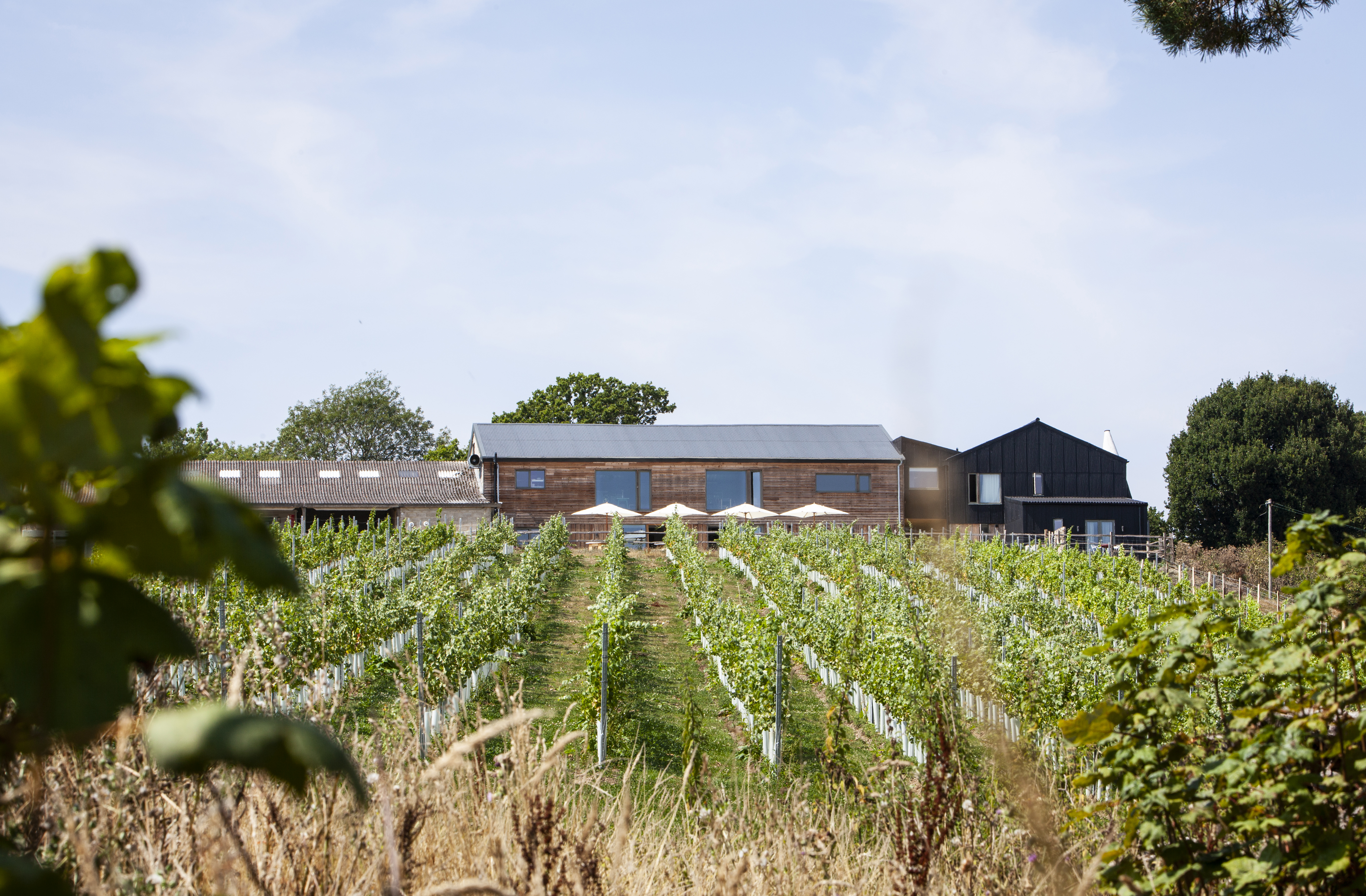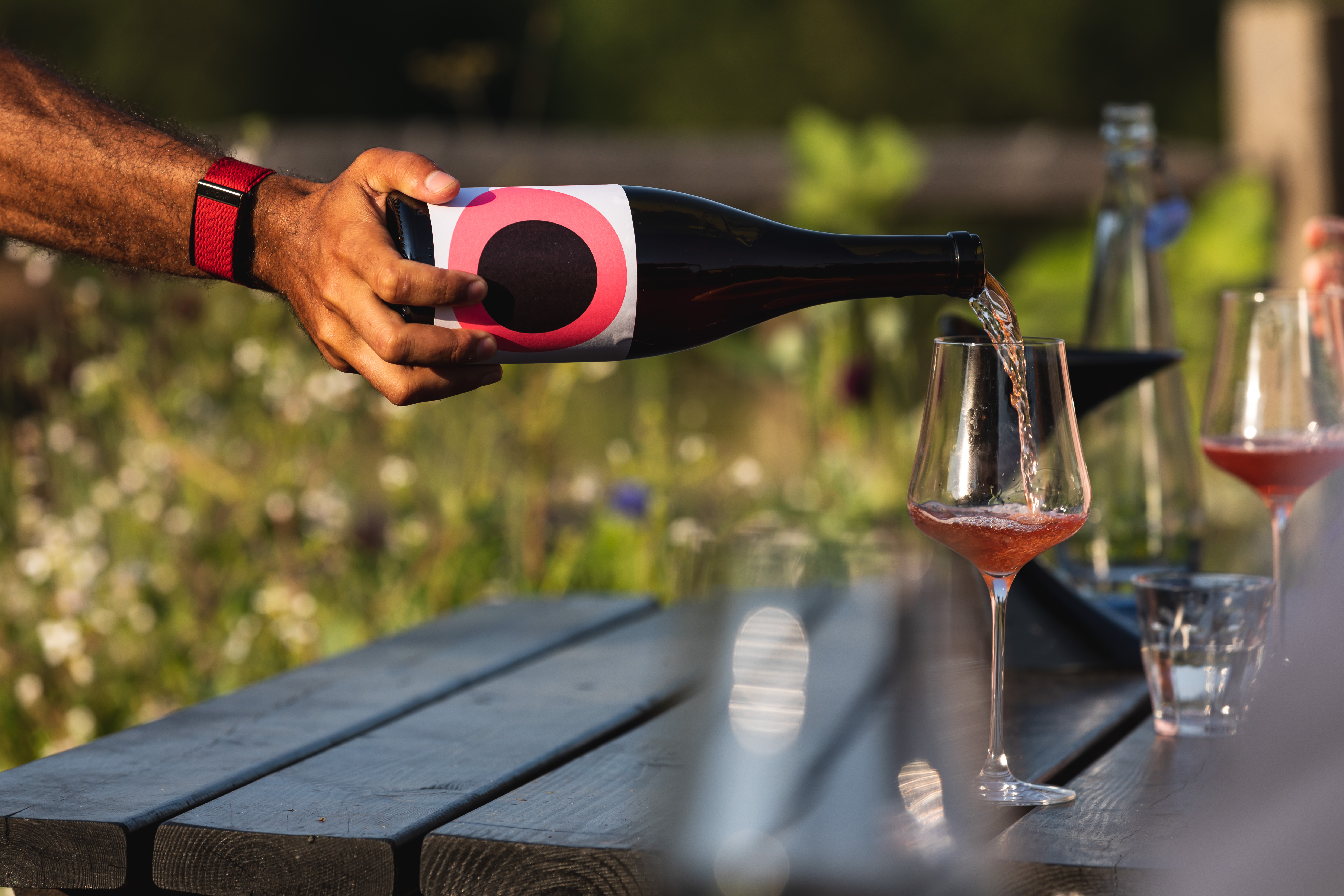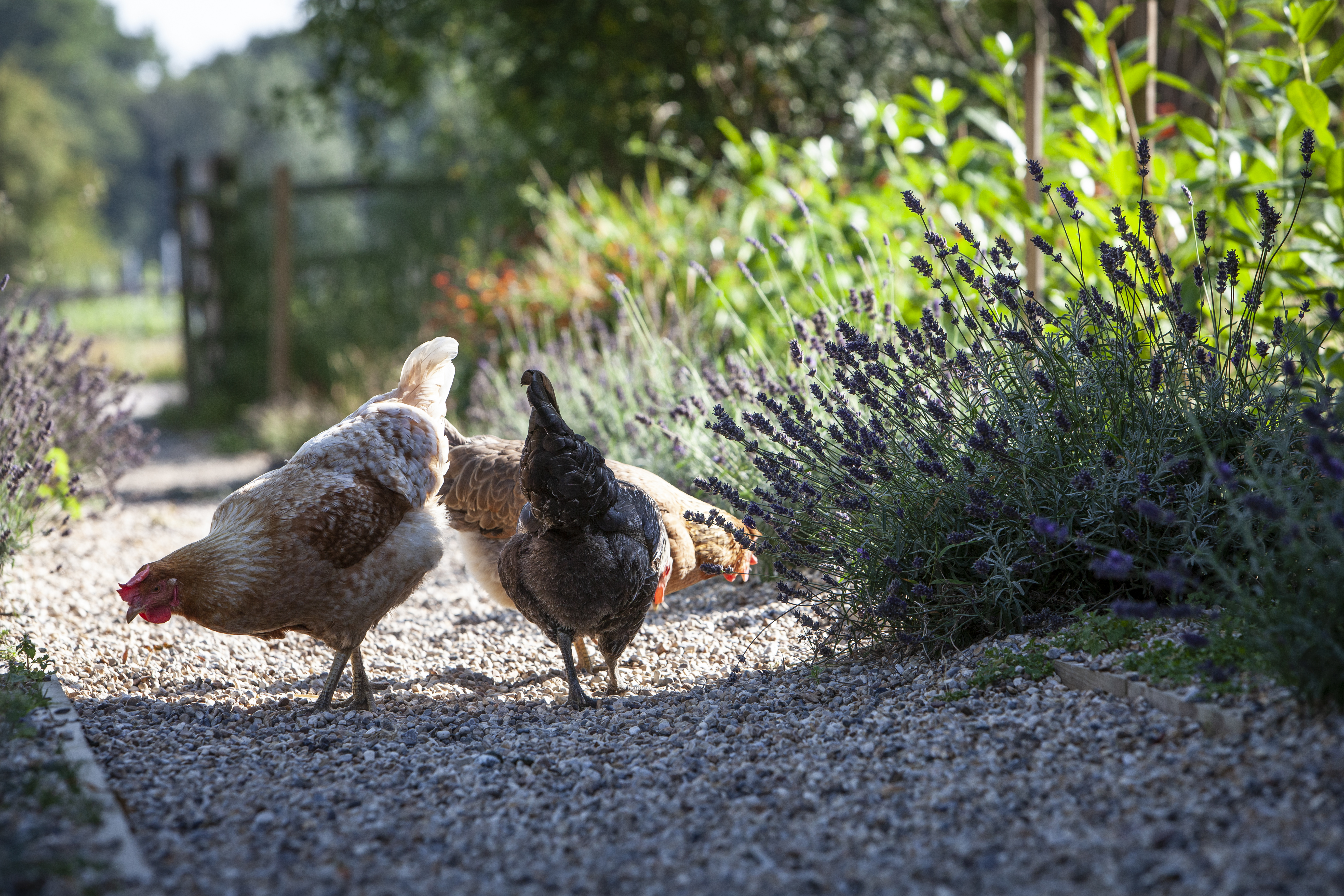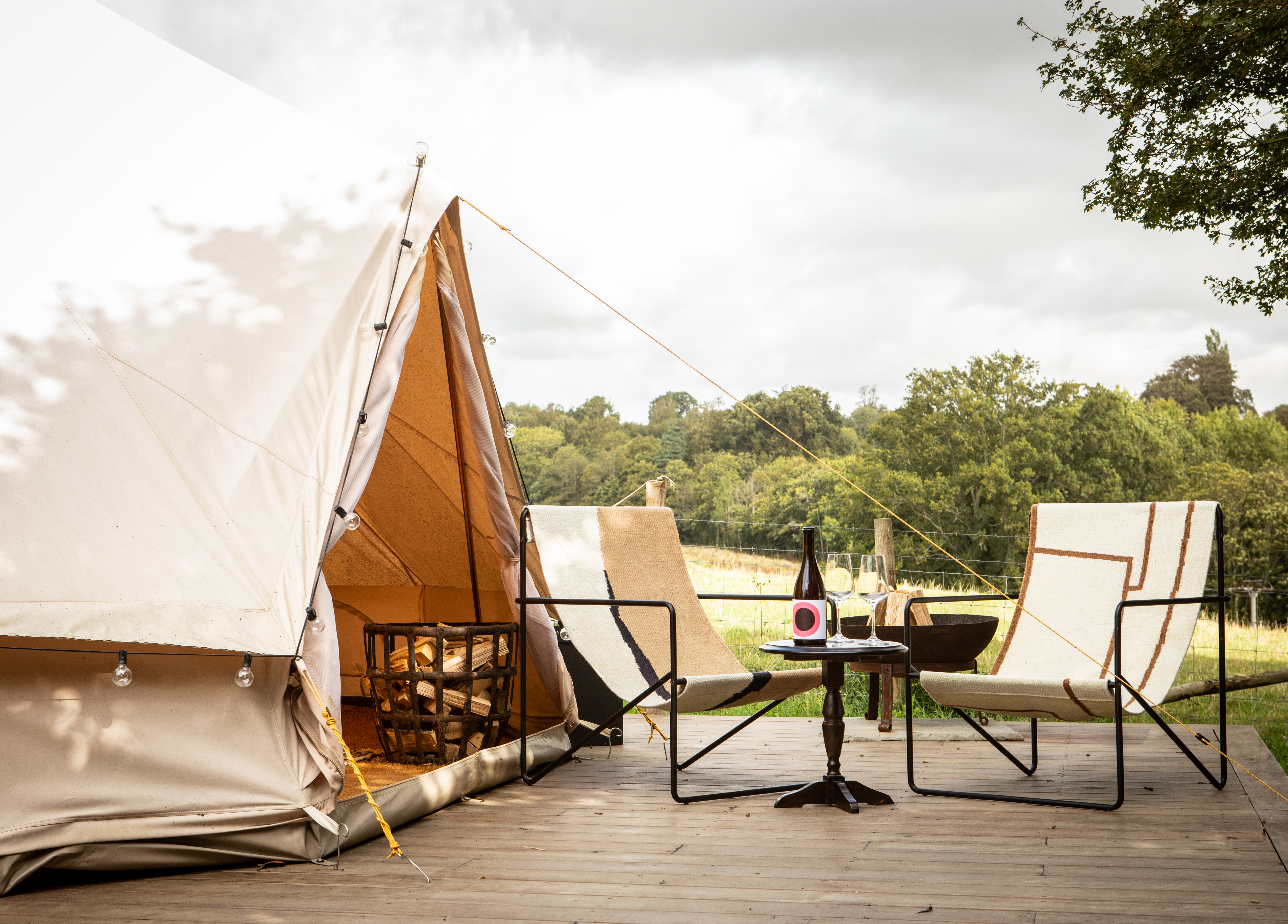Free digital copy
Get Speciality Food magazine delivered to your inbox FREE
Get your free copy
The most joyful thing about Britain’s farm shops is their diversity. Like fingerprints, no two are the same. While you know exactly what you’re going to find in identikit multiples, as you step over the threshold of a farm shop or food hall, the magic is in the discovery. Of home-reared meat. The freshest vegetables, recently plucked from the ground, still dusty with soil. Cakes baked on site. Local produce, carefully chosen from small independents.
Some farm shops are rustic ‘side of the road’ jobs. A way to generate extra profit from surplus milk, eggs or fruits. At the other end of the scale, are huge, multi-purpose operations, skillfully combining growing and rearing with retail, on-site dining, family attractions, and so much more.
The Covid pandemic proved to bolster the popularity of the farm shop experience. As, often, the only port of call at the time for essentials, they were introduced to a whole new audience of shoppers – many of whom have stayed loyal, continuing to champion what’s ‘on their doorstep’.
Bucolic Tillingham is part of a new-gen wave of farm shops appealing to this younger crowd, according to marketing manager Nikki Cochrane, who says the estate, and what it has to offer (from shopping, to its own wine and vineyard tours, and dining) has exploded in popularity amongst the 25 to 35-year-old crowd, who, she’s told, have more often than not been lured to East Sussex by Instagram or TikTok content.
“The demographic is more mixed than I could ever have imagined really,” she says. “It’s definitely ‘Insta-friendly’ which has helped, and we’re finding younger people are becoming more interested in wine, and they’re looking for more sustainable restaurants.”
Head of wine, Tierney Beames, adds, “Covid, and Brexit created the perfect storm for people seeking an experience. The thing about not being able to travel so easily post-Covid was that it created a real spike in English wine tourism. When people were allowed to move again freely, but travel was restricted to the UK, it was an interesting shift.”

At the time of writing, Tillingham farm has a small shop selling its own wines, and homemade pickles and sauces made using produce from the kitchen garden, with a larger farm shop due to open imminently, enhancing an already strong offering. “We’ll be selling our own lamb and lots more,” reveals Nikki. “We’ve got big ambitions, and we’re super excited.”
The Tillingham Estate is owned by Lord and Lady Davenport, who were impressed, in 2017, by Tierney’s vision to develop part of their land into a biodynamic vineyard.
“There wasn’t much on the land other than derelict buildings,” explains Nikki, “and in the middle there was an old Dutch Barn. In the original plans that was going to be removed, but a designer came in and worked with them and actually convinced them to keep it, which was definitely the right idea.”
The operation centres around the barn, oast house, restaurant and vineyard, with vines planted in 2017, and the gates flung open to the public in 2019…just a few months before Covid struck.
Late summer/early autumn 2024 will be an exciting time for Tierney, who has been waiting patiently for seven years, for the estate’s vineyard to come to full fruition, having relied until now (as all vineyards do) on bottling wines blended using grapes from other wineries in order to kickstart production.
“Last year was the tipping point for the vineyard,” he says. “Each vine produces a bit of fruit each year until it matures at eight years. We are at year seven, so we’ve had to buy some wine in, but this year is the first year we’ve been able to use our own grapes - it’s 50 tonnes from Tillingham, and 20 tonnes bought in. I’m hoping that for the 2024 vintage it will be all Tillingham’s wine.”

As the climate evolves, with milder weather experienced especially in the East, Southeast and Western parts of the UK, vineyards are becoming commonplace, with the industry here having been utterly transformed from what used to be thought of as a novelty, hobbyist endeavour, to big business. Some of France’s top-flight makers have even started investing in English plots.
To farmers with shops thinking about diversifying into winemaking, Tierney jokes “it’s a great way to turn a big fortune into a small one”. He adds, though, that with proper planning, knowing you’re in it for the long haul, producing wine could prove lucrative in the future.
“You’ve got to think about what the climate is going to be like in 20 years. Plan for that rather than the now. That’s something people are realising and being caught out at the moment. The climate is changing more rapidly than anyone ever expected.”
It’s also “very important”, more important than soil quality, to consider your site and location, he adds. “It does need to be well exposed and ventilated. If you’ve got a damp site you’re going to struggle. England is famously wet, and humidity in a vineyard leads to mildew. You definitely don’t want to be growing on a North-facing hillside!”
Tillingham is clay over a sandy loam, and “quite different from the landscape most people think of with English sparkling wine,” says Tierney. “That leans us to being a bit better suited to still wines. There’s more richness to the fruit. At the moment we’re producing 60% still, and 40% sparkling.”
The farm estate runs to 70 acres, with around 25 of those laid to vineyard across six plots, a few of which are sub-divided, to deliver 21 varieties of grape. It is, Tierney admits, quite an unconventional approach, but one that ensures they can experiment on an ongoing basis, and adapt to what the climate throws at them without putting all their eggs in one basket. “It’s nice to have a safety net weather-wise. We’ve got the classics, like Pinot Noir and Chardonnay and hybrids, but also lots of Germanic vines which crop a little more safely and reliably. You’ve got to have a really good year to harvest Chardonnay and Pinot, and if you get a bad year you can end up with nothing!”
There is a traditional method sparkler for customers to enjoy, though Tierney crafts the estate’s with a 50/50 Meunier and Chardonnay blend, doing away with Pinot Noir. Also on the fizzy side is a Veneto-region style Colfondo, alongside a variety of still wines, rose, a little red, and some blushed skin contact wines landing later this year.
An interesting prospect, then, for visitors, who have plenty of choice at tastings and tours, which run throughout the week. Alongside visiting the vineyard, and sampling wine, these guests also get the chance to appreciate the natural beauty of the landscape. A landscape of grazing sheep, woodland and wildflowers.
This is all complimented by the rest of what the site has to offer – including accommodation and a restaurant. “So many vineyards have tasting rooms, but that’s the extent of it,” says Tierney. “They act as a bit of a crutch – another way to generate footfall. But here, we offer the complete package. You can experience sitting in a restaurant, at the vineyard your wine came from, and can stay for the night. There’s not many other places in the UK where you can do that.”
Any farm shop operator will tell you having a catering arm is challenging, but can do wonders for footfall, and that’s certainly been the case at Tillingham, whose restaurant plays a crucial part in its success, drawing diners from far and wide – not just those visiting the vineyard.

The restaurant menu is hinged on what’s looking at its best in the walled garden, estate lamb, hogget or mutton, and seasonal, local produce, with a five to six course set tasting-style menu offered in the evenings alongside wine flights and pairings. Its dedication to sustainable practices and sourcing has earned the eatery a Michelin Green Star – one of only 23 in the UK and Ireland.
“They really take into account your systems and the way you work,” Nikki says. “So, we have our wine in kegs on draft rather than in bottles in the restaurant, and we send the kegs back to the company to make new kegs. It’s a closed loop system. Our garden is organic and natural. We make compost from garden waste, and the sheep’s wool is used for mulch. We’re all about farming and growing biodynamically, and using natural farming methods, like putting in mixed cover crops for the soil, and pollinators for insects. It’s a lovely thing to be a part of.”

As is the accommodation, which has proved very popular with those city dwellers wanting to breathe in fresh country air on a staycation. Tillingham offers 11 rooms and two bell tents with “the most beautiful views over the oast house or the vineyard” says Nikki.
Although they are appointed with all the creature comforts today’s travellers (especially those wanting to impress on the ‘gram) could desire, the team made a conscious decision not to include TVs in rooms.

“We think coming to a place like this should almost be a bit of a digital detox,” Nikki explains. “When people come to stay here, we want them to be at one with nature, and mindful of the setting and the land.”
The spaces are the concept of local designer McCully & Crane “who have made a name for themselves and have a similar audience to us,” says Nikki. “So that makes them a bit of a draw as well. They came in at the beginning when the restaurant was being designed and did all the interiors. But now our guest services manager looks after them. She takes a lot of care over how they look. She’s a bit like the style police – if there is a chair she doesn’t like, she will block it,” Nikki smiles. “Everything here is considered. There’s a lot of vintage, and that gives us a real appeal with the kind of audience we attract.”
All these little touches make the estate “a vibrant, really nice place to be” Nikki adds, saying other farm shops and farm sites shouldn’t underestimate the buying power and social power of newer, younger shoppers. They are the future, but they are also spending now, and contantly searching for unique opportunities to buy, eat and experience innovative, exciting British food and drink.